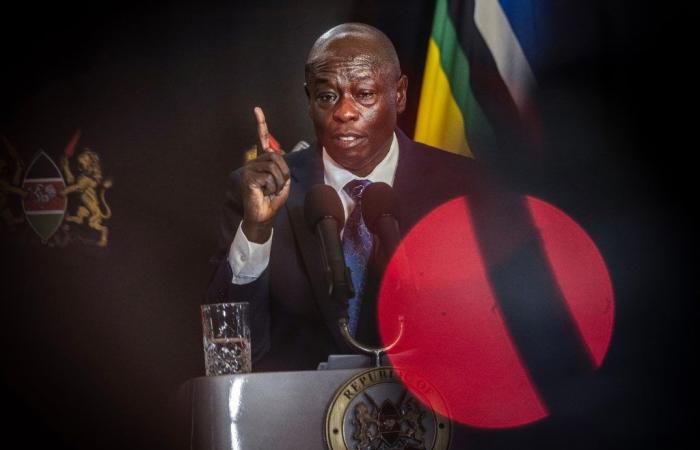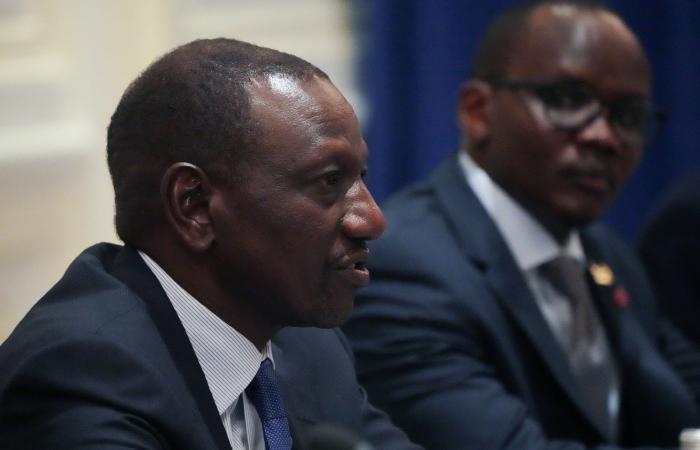The National Assembly overwhelmingly approved last week an impeachment motion against the vice-president, who has been in open conflict with head of state William Ruto for several months.
And the Senate should follow suit in a vote on Thursday evening, several major local media estimated on Wednesday.
To be definitively adopted, the motion must have at least two thirds of senators, or 45 votes.
Mr. Gachagua’s chances of political survival are slim if opposition members support the ruling party, as was the case in the lower house.
He could become the first vice-president removed from power as part of such a procedure, provided for by the 2010 Constitution.
But he vowed to fight “until the end” and could fight his removal in court.
Mr. Gachagua, 59, is notably accused of embezzlement, influence peddling and fraudulent acquisitions of hotels and apartments.
He is expected to respond in the Senate on Thursday to accusations that he described as “pure propaganda” and a “plot aimed at ousting (him) from power due to other political considerations.”
Mr. Ruto had chosen Mr. Gachagua as his running mate for the 2022 presidential election, despite his sulphurous reputation already marked by several accusations of corruption.
With a solid network of influence, particularly in the strategic region of Mount Kenya, this former businessman from the Kikuyu ethnic group – the majority in the country – played a crucial role in Mr. Ruto’s victory against his rival Raila Odinga (50.49% against 48.85%).
But relations between the two men at the head of state have deteriorated, particularly since an anti-government protest movement which shook the country in June and July.
The vice-president’s detractors accuse him of not having supported the head of state in the face of demonstrations demanding his resignation. The repression of this protest left at least 60 dead.
The movement has run out of steam but resentment is still present, and the current crisis at the top of the state is for many Kenyans a new sign of disconnection from the political class.
William Ruto has remained silent on the matter, but the impeachment motion was filed by a member of the presidential coalition, Kenya Kwanza.
Mr. Gachagua believes that the procedure “cannot” have been launched without the agreement of the Head of State, and to have been put aside by the government.
“I am now considered a spent cartridge,” he said. “They want to remove me and appoint someone else, in defiance of the wishes of Kenyans.”
Among the names of potential successors mentioned by the Kenyan media in the event of dismissal are Interior Minister Kithure Kindiki, Foreign Minister Musalia Mudavadi and a county governor, Anne Waiguru.
Mr. Gachagua’s lawyers say the impeachment process is unfair and rushed. The vice president tried to block the Senate’s debates and vote in court, but several referrals were rejected.
He nevertheless promised to fight “until the end”.
“I am confident that the courts will exercise judicial authority and protect and uphold the Constitution and the will of the people,” he said during a church service in central Kenya on Sunday.







